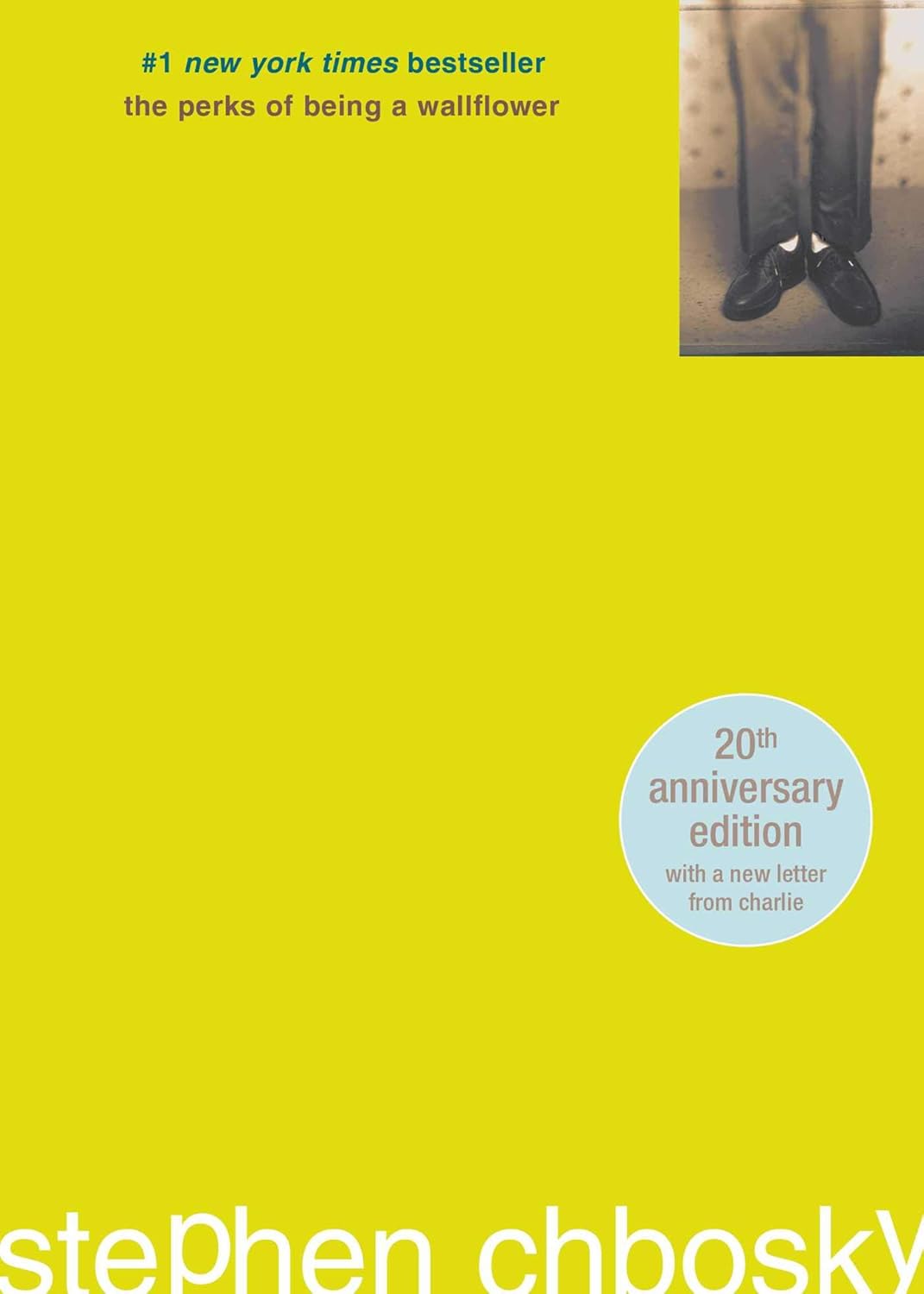Book Summary
Stephen Chbosky’s The Perks of Being a Wallflower is an epistolary novel that follows 15-year-old Charlie through his freshman year of high school in early 1990s Pittsburgh. Written as a series of letters to an anonymous “friend,” Charlie’s candid narration documents his journey from social isolation to finding his tribe in stepsiblings Sam and Patrick, who introduce him to The Rocky Horror Picture Show, mix tapes, and the bittersweet chaos of teenage life. Through house parties, first loves, and family dramas, Charlie grapples with mental health, trauma, and the universal struggle to participate in life rather than observe from the sidelines.
What begins as a seemingly typical coming-of-age story evolves into a profound exploration of memory and healing. Chbosky masterfully balances the euphoria of youth (“I feel infinite”) with its darker undercurrents—sexual abuse, suicide, and substance use—creating a narrative that’s equally uplifting and devastating. The novel’s enduring appeal lies in its authenticity; Charlie’s voice resonates with anyone who’s ever felt like an outsider, making it a cult classic since its 1999 publication.
Key Themes
At its core, Perks examines the liminal space between childhood and adulthood. Chbosky tackles mental health with remarkable nuance, portraying Charlie’s anxiety and depression through subtle narrative choices—like his fixation on others’ sadness at the mall—rather than explicit diagnosis. The novel also explores sexuality as a spectrum: from Charlie’s childhood curiosity about kissing boys to Patrick’s secret relationship with a closeted football player, Chbosky presents queer identity as both deeply personal and shaped by societal expectations (particularly in the 1990s setting).
Trauma and memory emerge as central motifs, culminating in the revelation that Charlie repressed childhood sexual abuse by his beloved Aunt Helen. This twist recontextualizes his emotional volatility and idolization of Helen, offering a poignant commentary on how children process violation by trusted figures. The novel’s treatment of friendship as salvation—Sam and Patrick’s acceptance gives Charlie the courage to “participate”—contrasts sharply with its depiction of familial silence around abuse, creating a complex dialogue about where healing begins.
What Makes It Unique
Perks stands out for its unconventional structure and voice. The letter format creates intimacy, as if Charlie is confiding directly in the reader, while allowing gaps in his understanding (like the recipient’s identity) that mirror adolescent uncertainty. Chbosky’s prose oscillates between lyrical (“And in that moment, I swear we were infinite”) and starkly simple, reflecting Charlie’s simultaneous depth and naivety. Unlike many YA protagonists, Charlie isn’t precocious—his emotional sensitivity feels genuine, from his tearful reactions to small kindnesses to his confusion about social cues.
The novel’s cultural impact is equally distinctive. It predated the YA boom but became a blueprint for the genre, blending raw honesty with quotable wisdom. Its 2012 film adaptation (directed by Chbosky) further cemented its status, though the book’s epistolary interiority offers a richer psychological portrait. While some criticize its portrayal of teen drug use and sexuality as idealized, others argue this romanticism captures how adolescents experience those moments—a tension that makes the story feel truer to teenage perception than adult realism.
Reader Reactions
Readers consistently describe Perks as a book that “finds you when you need it.” Many report weeping through the final chapters, with one reviewer noting, “I cried for practically half the book. And I kept crying hours after I finished it.” The novel’s exploration of mental health resonates particularly with those who felt misunderstood as teens; Charlie’s letters articulate emotions they couldn’t name. Tumblr and TikTok trends still circulate its quotes, especially “We accept the love we think we deserve”—a line that’s become shorthand for self-worth struggles.
Debates persist about its appropriateness for younger readers due to graphic content, but even critics acknowledge its value. As one parent-reviewer admitted: “My daughter loves this book… I hadn’t read it, but now that I have, I love this book.” The novel’s ability to bridge generational divides—speaking to both teens navigating first experiences and adults reflecting on their own—testifies to its timeless quality.
About the Author
Stephen Chbosky grew up in Pittsburgh, Pennsylvania, mirroring Charlie’s setting. A USC film school graduate, he initially pursued screenwriting; his first film, The Four Corners of Nowhere, premiered at Sundance in 1995. This visual storytelling background informs Perks‘ cinematic vignettes, from the “tunnel song” driving scenes to the chaotic energy of Rocky Horror performances. Chbosky has cited J.D. Salinger and Tennessee Williams as influences, evident in Charlie’s Holden Caulfield-like voice and the play’s themes of desire and repression.
After Perks‘ success, Chbosky directed the film adaptation (2012) and worked on projects like Wonder and Dear Evan Hansen, often exploring adolescent outsiders. His 2019 novel Imaginary Friend marked a genre shift to horror, but Perks remains his defining work—a semi-autobiographical story he’s called “a love letter to the kids who need it.” His empathy for marginalized voices, whether queer teens or abuse survivors, gives the novel its enduring power.
Memorable Quotes
“We accept the love we think we deserve.”
—Spoken by Charlie’s teacher Bill, this becomes his metric for relationships, including his sister’s abusive boyfriend and Sam’s self-sabotaging choices.
“And in that moment, I swear we were infinite.”
—Charlie’s euphoric declaration during a night drive with Sam and Patrick, capturing the transcendent potential of youth.
“I am both happy and sad, and I’m still trying to figure out how could that be.”
—A quintessential expression of Charlie’s emotional complexity, reflecting the duality of depression.
